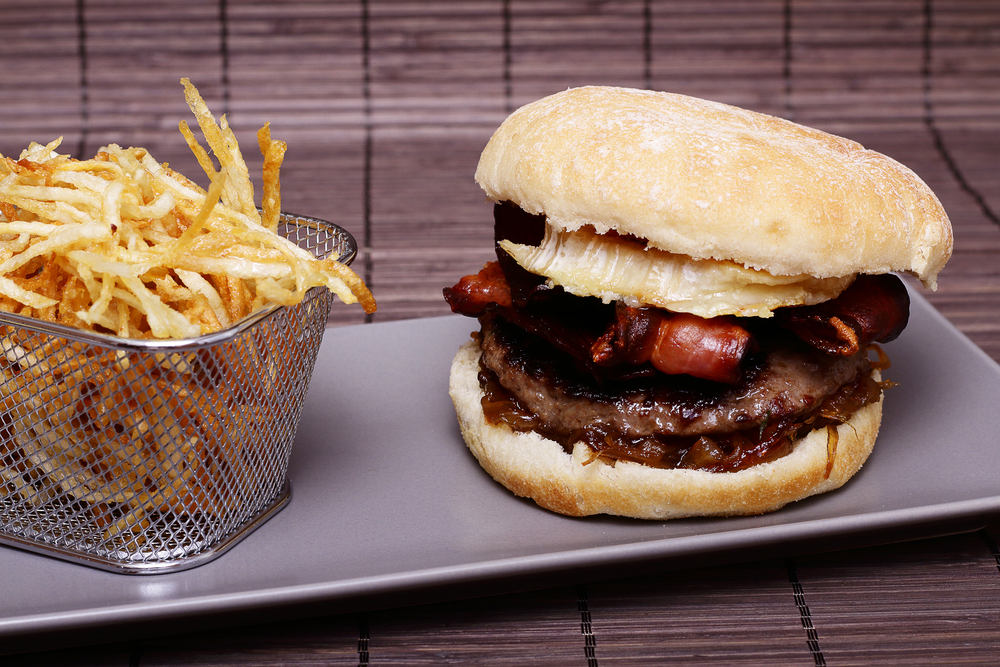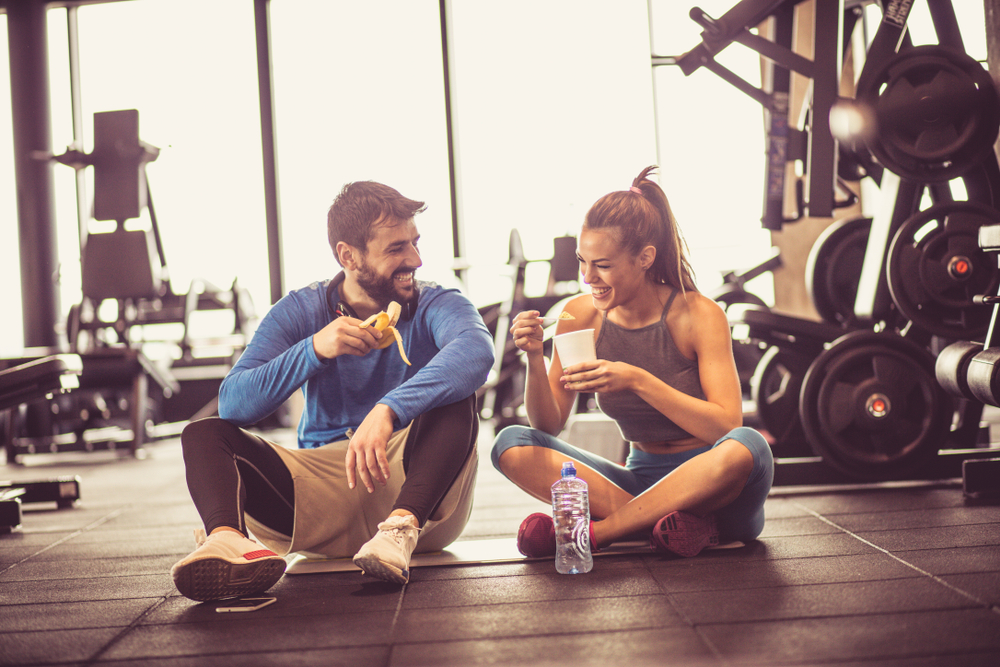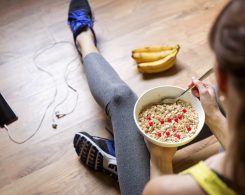If you want your training to be effective, forget about treats afterwards because they won’t help you achieve your goals
You’ve just finished training and you’re ready to leave the gym. One of the first things you notice is that your stomach is empty. You get home and you eat the first thing you can find in the cupboard… or worse still, you stop for a burger at the first fast food place you stumble upon. Wrong!
Even though you’ve been burning calories at the gym, the worst decision you can make is eating a sugary doughnut, because, aside from not contributing to your recovery, you’ll probably be eating more calories than the ones you burnt at the gym. You won’t notice many results doing that.
If you really want your effort to be worthwhile and achieve the goals you’ve set yourself, you should know which foods and habits to avoid after working out. Here are a few of them.
-
Not hydrating:
“Hydrating after working out is very important to help your body recover,” explains Adam Martin, an expert in nutritional communication. “Official recommendations include drinking at least 150% of the weight you’ve lost during the first 6 hours after exercising. So if you’ve lost 2 kg of your body weight, for example, you should drink about 3 litres of liquid (around 500 ml/hour or one glass every 20 minutes).
-
Coffee:
It’s true that caffeine can help improve your performance if you drink it before training as we explained in this article, but what happens if you drink coffee after training? The same thing as if you drink a beer: it dehydrates your body when it needs to hydrate to help you recover. If you also take it with sugar, you’ll be adding extra calories that won’t help you achieve your goal of losing weight.
-
Vegetables:
Eating more vegetables is always a healthy option because of their high fibre, vitamin and mineral content, but they don’t have enough calories or proteins to help your body recover after working hard at the gym. In any case, if you’re a big fan of vegetables, you can combine them with pasta, to make sure you get a good portion of carbohydrates.
-
Very greasy fast food:
Fatty foods like bacon, hamburgers and buttered toast… They do contain protein, but they aren’t recommended for the high percentage of fat they contain. In addition, this type of foods are metabolised more slowly. What we need after training are foods that can be digested faster. Good examples are toast with avocado, fresh cheese and an omelette.

-
Abusing nutritional supplements:
“When you take sports supplements, you need to be aware of what for, the dose, the time of day you take them and if they are well formulated” explains Claudia Turc in this article, who’s responsible for the nutrition service at DiR Clubs. She adds that “if your diet is balanced and varied, you probably don’t need to use these products, but they can be the perfect complement to meet your body’s specific needs after training.” In any case, they can never substitute real food.
-
Not eating anything is also a mistake you should avoid:
Another of the mistakes Claudia Turc tells us about and many people make, is to not eat anything for several hours after exercising. Claudia recommends that “a post-gym meal should include protein to repair muscles correctly and avoid muscle fatigue. There are different sources of (animal and vegetable) protein. Including simple carbohydrates is equally important, since they are digested and absorbed quickly and, therefore, will provide immediate energy, optimising training and favouring a rapid recovery. Some examples are fruit, honey, white bread, potatoes, jam, sweetened cereals…”
If you want more information on how to eat a healthy and balanced diet, we recommend the DiR nutrition service, formed by a team of nutrition specialists with extensive experience in creating fully customised diets that are based on your goals. You can request your first free nutritional advice by clicking here.









What do you think?